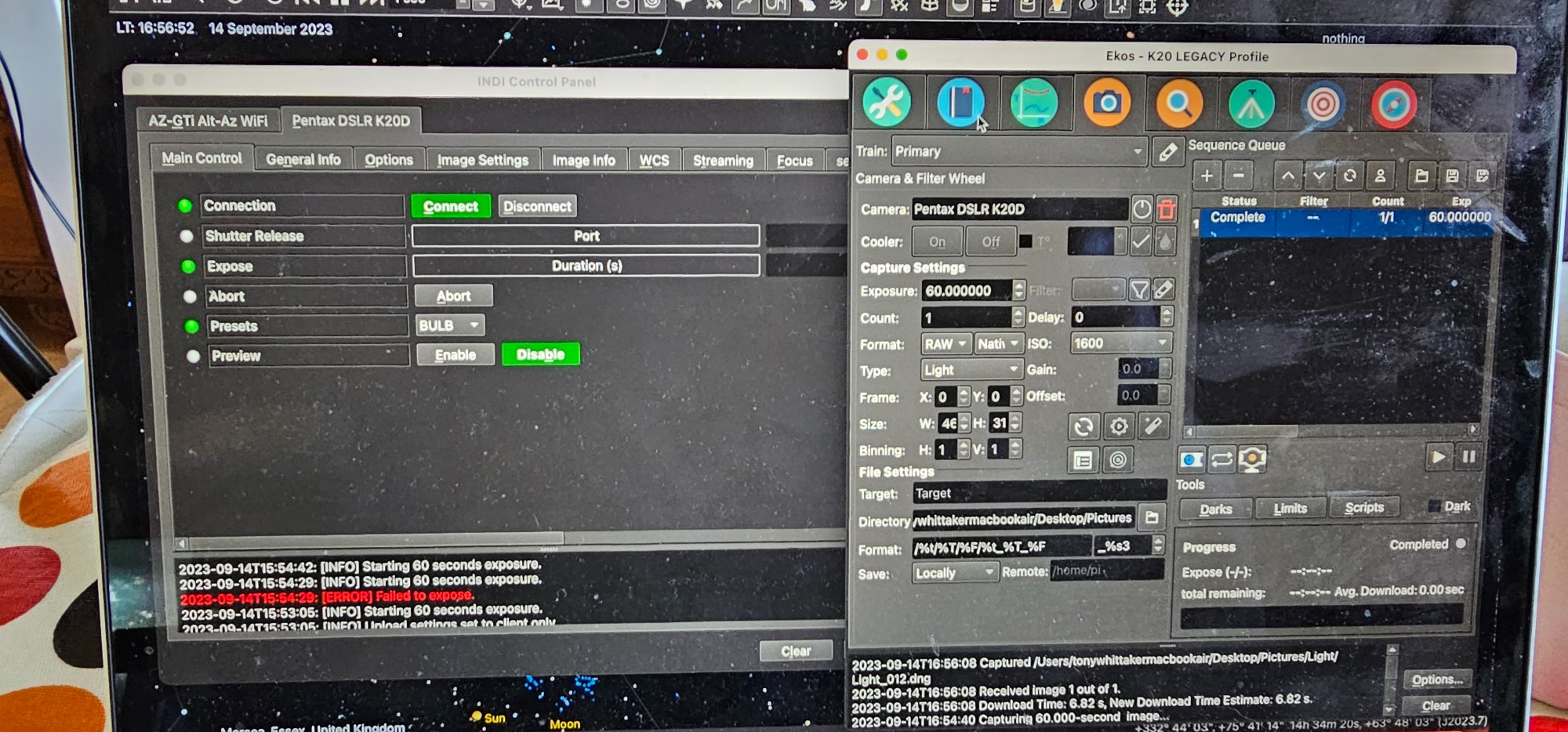Hello Everyone
I've been using Kstars and Ekos on a Raspberry Pi 4, Mac for a while now and wanted to share results using a K20D Pentax camera. I use an Alt-Az mount from Skywatcher.
I started having viewed the youtube video on using a DSLR as a telescope by a popular content creator and got hold of the bits to get going.
I wasn't able to get far with Stellarmate, with various issues getting in my way. However, I was able to move forward by using the Kstars, Ekos software that is more verbose when tracking down issues via logs etc. Stellarmate is just a front end that sits above I believe.
I used a setup where I connect to the Raspberry Pi via VNC and start a server (details on how can be found here
www.macobservatory.com/blog/2020/6/4/rem...using-a-raspberry-pi - just love the internet! ). I can the use Kstars and Ekos on my mac to find, track and capture sky objects.
The software can be a bit flaky but by following a process when setting up and powering on, I can get to my first plate solve in about 5 minutes and sessions will generally be robust after that.
I was surprised and the quality of images I can capture and stack in Siril ( that seems to get around the field rotation issue with Alt Az mounts ) and have now stared to push a bit harder with some more distant objects.
So I have a K20D that I picked up cheaply with some lenses. I also have a K30 that I have attempted to use.
I have had most success with the K20D as the primary camera. I use the legacy Pentax driver and am able to set ISO, exposure time (up to but no higher than 14 secs), plate solve quickly and make use of the neat dynamic directory creation for sky objects (a set of directories that store the lights images by the object name) so i can revisit the same object and add more data over time. As the mount is a GOTO design, I can come back, plate solve and continue to image, one night to the next in both FITS format and RAW (native).
I've tried to improve the exposure time but 14 seconds seems to be the limit before I get errors. I have no real success using the K30 with the native driver (M mode only) or legacy.
Things I want to try out next:
1) The autofocus dialog box for the K20D is available when I plug in an auto focus lens so I will try to see how I can get that to work.
2) I may change the mount to the dual camera version so I can try to use the K30 too. I will have to activate the K30 via a separate remote with the K20D driving GOTO and primary imaging via Kstars. I'm curious to see if I can leverage Astrotracer (with the GPS unit) to take longer exposures whilst on the mount. Not sure if it will work if Astrotracer uses a fixed rotation algo rather than sensing rotation via its inbuilt accelerometers and adjusting the sensor accordingly.
3) Upgrade to a newer Pentax such as the K3 ii or iii and hope that one of the drivers available can work as well as the K20D or better.
If anyone has an idea how I can improve on the K20D's 14secs exposure time I'd be grateful. The software correctly time the snap but the issue appears to be on the download cycle.
Kind regards. Tony
I


